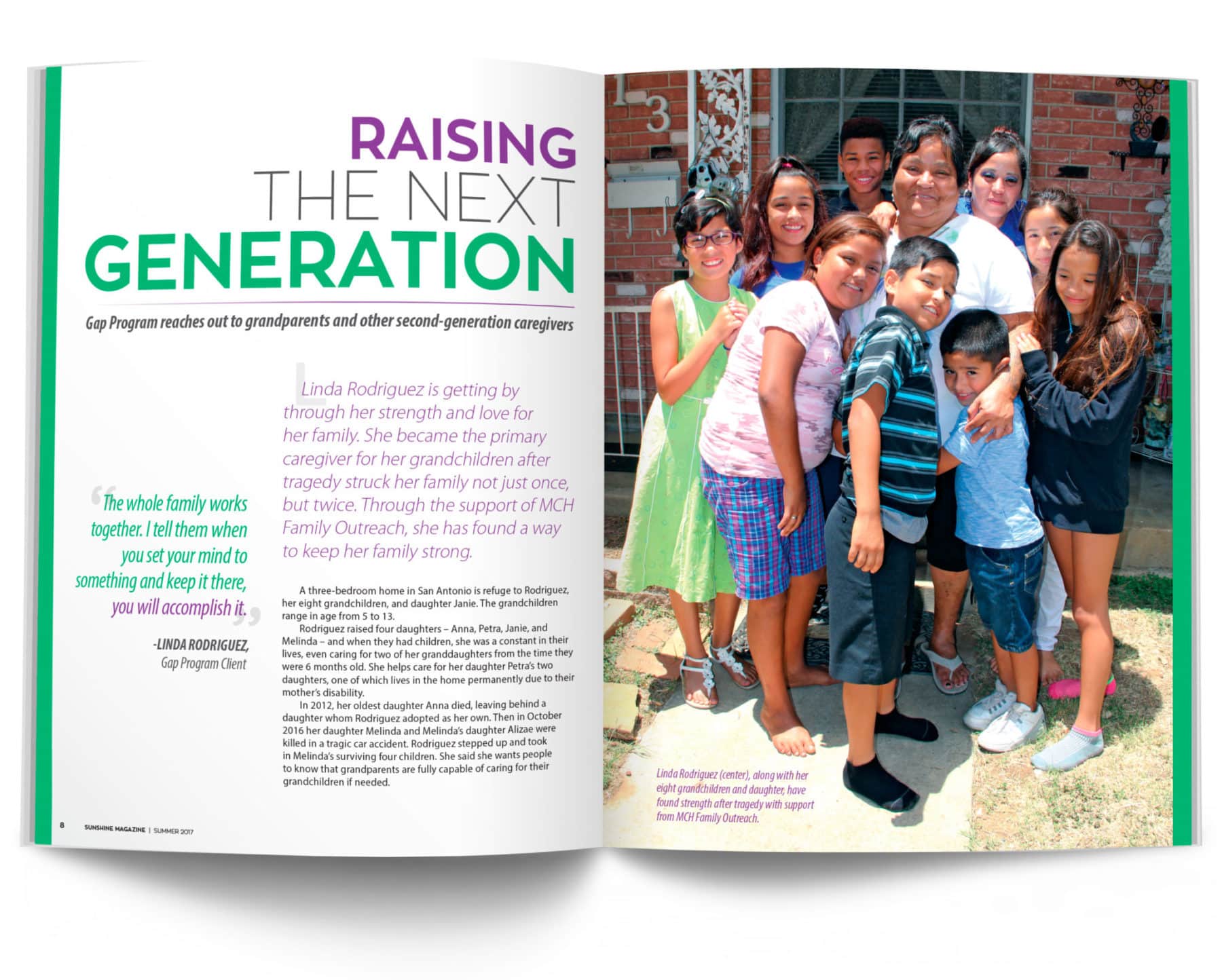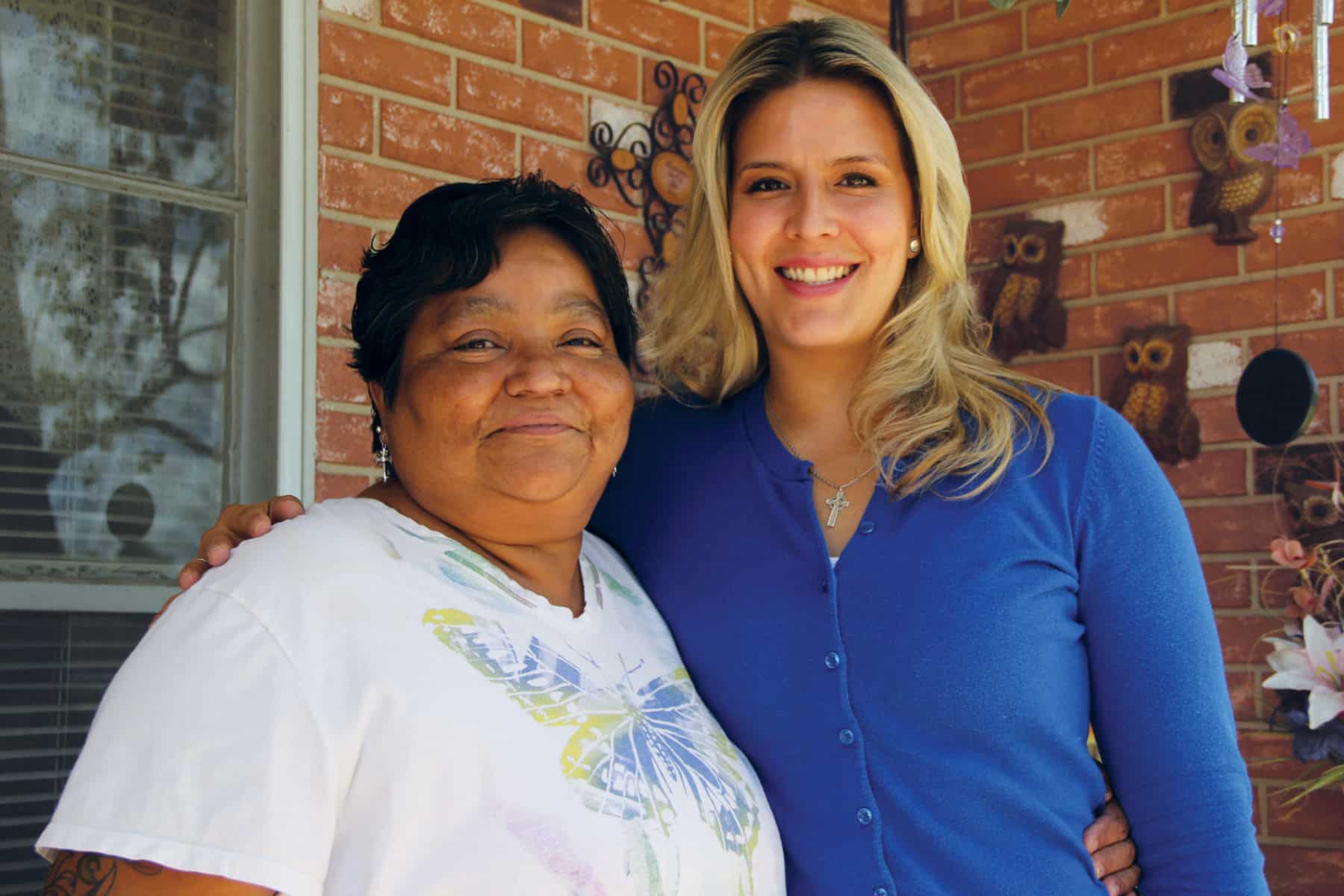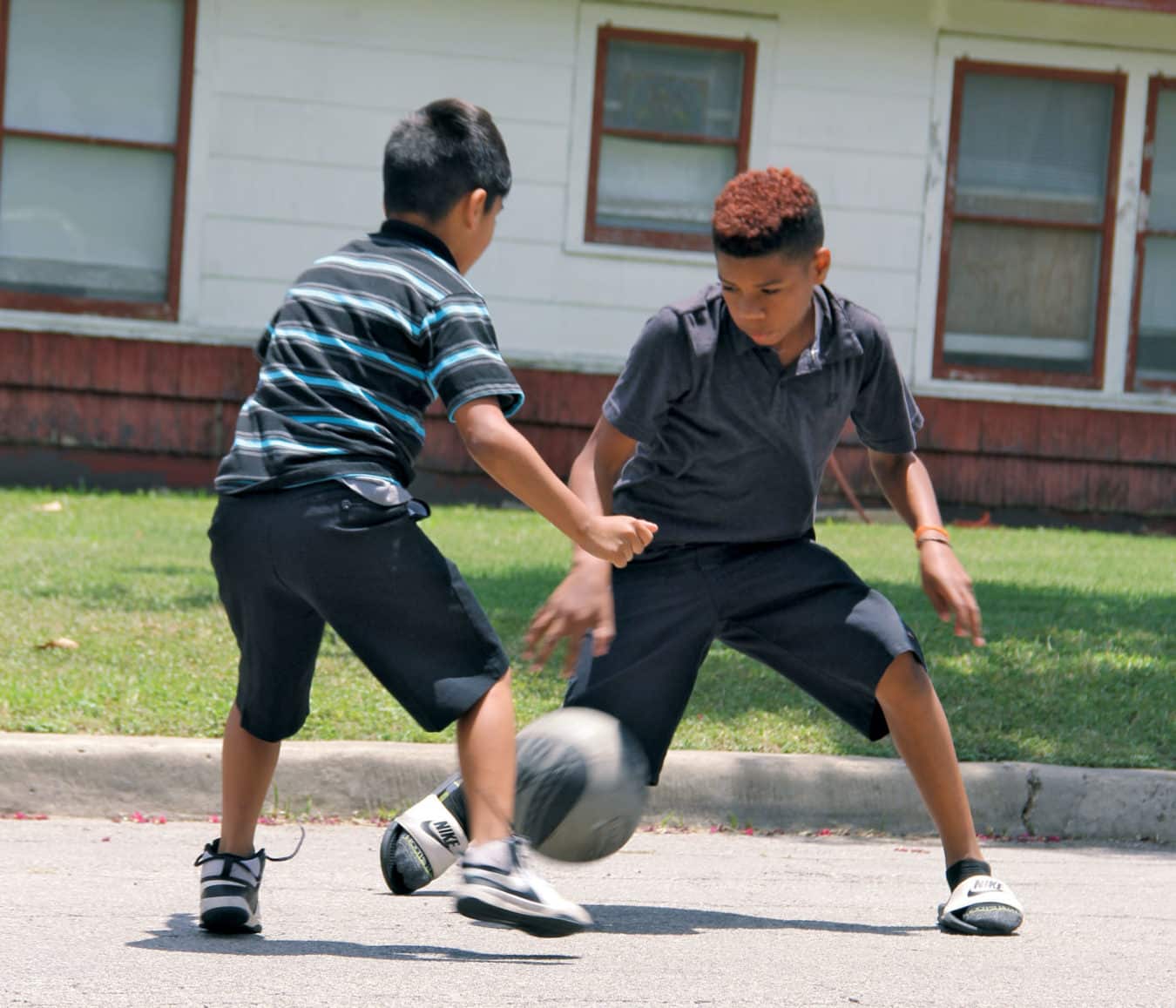 Linda Rodriguez is getting by through her strength and love for her family. She became the primary caregiver for her grandchildren after tragedy struck her family not just once, but twice. Through the support of MCH Family Outreach, she has found a way to keep her family strong.
Linda Rodriguez is getting by through her strength and love for her family. She became the primary caregiver for her grandchildren after tragedy struck her family not just once, but twice. Through the support of MCH Family Outreach, she has found a way to keep her family strong.
A three-bedroom home in San Antonio is refuge to Rodriguez, her eight grandchildren, and daughter Janie. The grandchildren range in age from 5 to 13.
Rodriguez raised four daughters – Anna, Petra, Janie, and Melinda – and when they had children, she was a constant in their lives, even caring for two of her granddaughters from the time they were 6 months old. She helps care for her daughter Petra’s two daughters, one of which lives in the home permanently due to their mother’s disability.
In 2012, her oldest daughter Anna died, leaving behind a daughter whom Rodriguez adopted as her own. Then in October 2016 her daughter Melinda and Melinda’s daughter Alizae were killed in a tragic car accident. Rodriguez stepped up and took in Melinda’s surviving four children. She said she wants people to know that grandparents are fully capable of caring for their grandchildren if needed.
“I didn’t have a perfect childhood myself but I learned from that,” she said. “I took on two jobs to support my kids and I kept working and working until I couldn’t any more. Not only for my daughters but now for my grandkids.”
She said she never thought twice about taking in her grandchildren and loves having them in her home.
“These are my kids,” she said. “I see a lot of grandparents who couldn’t care less [about helping their children]. But for me as their grandmother, I have a responsibility too.”
Rodriguez heard about MCH Family Outreach through the children’s school and reached out for support even before Melinda’s death. She was matched with Melissa Arroyo, then case manager and now director of MCH Family Outreach in San Antonio. Together they developed goals to get food assistance for the family, assistance with utilities, referrals for therapists and psychologists, and low income legal assistance. MCH also helped the children enroll in an afterschool program and receive benefits through Medicaid. The case was successfully closed and the family was in good shape.
But after Melinda’s accident, it was simply too much for Rodriguez and she needed some guidance to help her and her family through the trauma.
“It has been really hard for me,” she said. “I needed that support. I needed somebody to talk to. I wound up in the hospital and I’ve been having a lot of problems. I keep it all inside of me. And it still hurts. I can’t seem to let it go and I need that one person to talk to, to help me through that.”
MCH case manager Danielle Flores took on Rodriguez’s case in January 2017 and has provided her with emotional support. She has walked alongside her as she has met challenges. MCH referred Rodriguez to an “Ask a Lawyer” event where she was able to get legal assistance to help solidify her rights to her grandchildren.

“We talked about what the needs were for this household,” Flores said. “It’s more for support so that we can communicate and so she has someone to talk to if she needs any resources. She does a great job of managing this household and keeping everything in line.”
Rodriguez has been able to work alongside Flores to assess her and her grandchildren’s needs and develop goals in order to strengthen her family. With the support she has received, Rodriguez is continuing to work through her grief and found a great partner in her daughter Janie, who has recently moved into the home with her own daughter.
“It means a lot to have Janie here,” Rodriguez said. “She’s still young and has all this responsibility. She chooses to be here and I just love her for that.”
With Janie able to care for their physical needs that Rodriguez’s health will not allow, the family’s situation is improving.
“The kids come first,” Rodriguez said. “We have it pretty much taken care of. We don’t live in luxury but we have what the kids need.”

Even though the case has come to a close, Rodriguez has a strong bond with MCH that will continue.
“Linda is an inspiration to others,” said Arroyo. “At a time of grief and loss, she has placed her grandchildren first, which has been an amazing strength in helping her family heal.”
“She is so incredibly strong and an amazing mother and grandmother,” Flores said. “She’s worked really hard for everything that she has and she’s come a long way from what she’s been through. She’s an amazing person and I feel very lucky to have had the opportunity to work with her and serve her and get to know her as a person.”
Rodriguez is grateful for the way MCH has walked alongside her in her mission to preserve and stabilize her family. She said the children have been able to get involved in extracurricular activities and also help around the house doing chores to earn money for items they want to purchase. They have also improved their grades.
“The whole family works together,” Rodriguez said. “I tell them when you set your mind to something and keep it there, you will accomplish it.”
About the Gap Program
Rodriguez was served through the Gap Program, formerly called the Grandparents As Parents Program, which assists second-generation caregivers. MCH has recently redesigned the program in order to meet the needs of more people in the community while also adding more structure and evidence-based practices into the program.
“The MCH Grandparents as Parents Program (GAPP) has served families well for many years,” explained Traci Wagner, MCH Family Outreach administrator for the Eastern region. “Our team wanted a way to meet the changing needs of families in Texas and New Mexico. We have developed a program to further support grandparents and other caregivers that is in line with our organizational strategy for offering hope to and impacting children and families. We have incorporated a comprehensive assessment of the family in order to enlist the best resources and to help them set goals. We hope to equip families with tools and resources that will promote healthy caregiving and interactions.”
The new program will offer in-home and support services to relative and kinship caregivers, not just grandparents, and will be fully transitioned into all MCH Family Outreach offices by Sept. 1.
“This continuum of in-home and support services to grandparents and other caregivers provides strength-based services to clients,” Wagner said. “We are able to support the kinship triad, which includes the child, parents (when safe and appropriate) and the caregiver. The new Gap Program is informed by industry best practices, theories and perspectives including trauma theory, empowerment approach and attachment theory.”
Leave a Reply